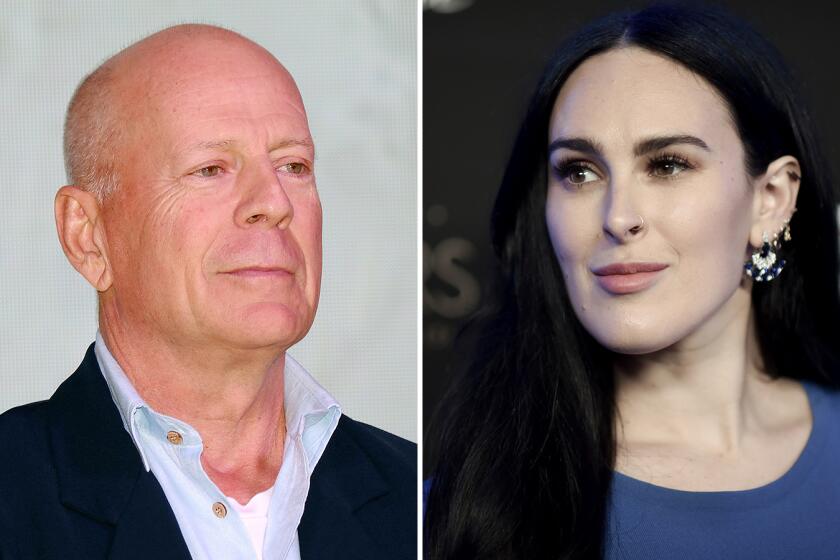Defending Jerry Lewis
I never thought I’d find myself defending Jerry Lewis. Like a lot of people of my generation (and, unless you live in France, the one before that and quite possibly the one before that), my brain just isn’t wired to appreciate the charms of his act, which has always struck me as about as close to dental drilling as comedy can get. But now that we’ve spent the better part of a week chastising the 81-year-old for saying, in the 18th hour of his Labor Day Muscular Dystrophy telethon, all or most of the verboten word “faggot,” part of me is feeling just a wee bit French.
In case you weren’t glued to the 21-hour telethon and missed the crucial moment, the gaffe occurred amid a bit of improvisation about imaginary family members, including “Bart, your older son” and what sounded like “Jesse, the illiterate faa. . . . “ Realizing his mistake, Lewis aborted the end of the word and quickly said “no.”
For vocabulary buffs like me, it’s fun to note that in Britain, the long version of the word once upon a time referred to a bundle of sticks and the short form means, among other things, a cigarette -- hence that delightful (and still current) expression “I’m going to nip out for a fag.” But as any Brit who’s ever dined in West Hollywood and announced his intention to go for a smoke can tell you, the other meaning is a lot more incendiary than Dunhills.
After “Grey’s Anatomy” actor Isaiah Washington said “faggot” in a backstage interview at the Golden Globes last January, the Gay and Lesbian Alliance Against Defamation, or GLAAD, managed to successfully put pressure on the media to bleep out or otherwise obscure the word whenever it escapes someone’s mouth in public (though it obviously didn’t work during the Jerry Lewis telethon.)
“What we’re seeing in the media is this being accepted as the ‘f-word,’ ” Marc McCarthy, GLAAD’s senior director of communications, told me. “It has finally registered with people that this is a word that cannot be used.”
That’s true unless you happen to be a member of certain gay circles where, in much the same way the “n-word” is bandied about by some African Americans, this f-word is often an statement of solidarity, even endearment. It’s also, rightly or wrongly, sometimes used by certain straight people who consider themselves so closely allied with the gay community that they’re entitled to the same insider language. And although you probably won’t find Lewis shopping for ottomans with the guys from “Queer Eye for the Straight Guy,” the wording of his apology suggests that he might, in his own way, consider himself part of the club. “Everyone who knows me understands that I hold no prejudices in this regard,” he said. “In the family atmosphere of the telethon, I forget that not everyone knows me that well.”
Does “knowing” Lewis mean understanding that he’s so down with the gay community that he can toss otherwise nasty words around with relative impunity? Moreover, can any straight person ever really pull that off, or is it merely some kind of post-politically correct fantasy?
I asked McCarthy if GLAAD had given any thought to the concept of “taking back” words like the f-word. I mentioned, for instance, that I had recently seen a T-shirt that said, “Marriage is for Fags.” I told him I found this to be a brilliant subversion not only of right-wing, anti-gay dogma but of certain reactionary liberal positions that equate marriage with patriarchal oppression. In other words, it cut through the hyperbole of both sides of the issue and landed squarely (if ever so subtly) in the pro-gay marriage camp. McCarthy did not share my enthusiasm.
“That’s upsetting,” he said. “You’re sending a confusing message to the straight community. By having a word that we’re trying not to advocate next to a word like marriage . . . it’s just wrong on so many different levels.”
McCarthy was careful to mention that he isn’t gay but is a “straight ally” of the LGBT community, which, he said, simply means that you’re supportive of the community and an advocate for tolerance. I would also put myself in this camp, but does that mean I’m not allowed to like that T-shirt? And what about the fact that some of the most celebrated straight allies in the world are unblinkingly referred to as “fag hags?”
McCarthy said he’d never thought about that question but would take a straw poll and get back to me. The verdict (and these were the feelings of a few individuals he spoke to, not the position of GLAAD): putting “hag” after the f-word doesn’t really make the term any less offensive, especially because “hag” isn’t a nice word either.
I’ll say. “Marriage is for hags” just doesn’t have the same ring to it. Though it does sound a little like a Jerry Lewis joke.
More to Read
Only good movies
Get the Indie Focus newsletter, Mark Olsen's weekly guide to the world of cinema.
You may occasionally receive promotional content from the Los Angeles Times.







